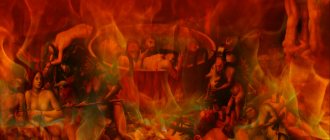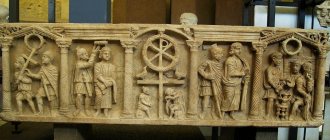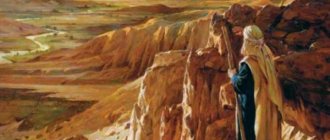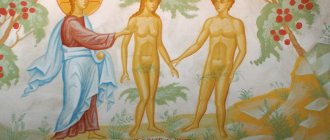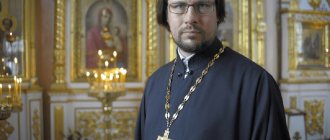/ ''Holy, holy is the Lord of hosts'' /
Performer: Andrey Kochkin, Vitaly Efremochkin New Generation, etc. Album: Without album Authors: Lyrics: Alexey Ledyaev, Music: Pavel Murashov Year: Unknown
Lyrics / Song lyrics
In Russian In English Chords Notes Music Video
"Holy, Holy is the Lord of Hosts"
1. Holy is the Lord of hosts, And the whole earth is full of the glory of the Lord.
Holy, holy is the Lord of hosts, Your hand is not shortened today. Chorus: Holy is the Lord of hosts! Holy, Lord of hosts! Holy, Lord of hosts! Holy, Lord of hosts! Holy, Holy!
2. You gather us like a bird gathers chicks. You protect us from our enemies. Your Kingdom endures forever and ever, Holy, Holy is the Lord of hosts.
Bridge: Create a pure heart in me, And wash my heart with your living water! Create a pure heart in me, And wash my heart with your living water!
"Holy, holy is the Lord of hosts"
Verse: Holy holy is the Lord of hosts, And the whole earth is full of the glory of God, Holy, holy is the Lord of hosts, Your hand is not shortened today.
Chorus: Con- and -at the Lord of hosts Con- and -at the Lord of hosts. You have to collect, as a hen gathers her brood, You protect us from our enemies, Thy kingdom endureth for ever and ever. Holy, holy is the Lord of hosts.
Bridge: Con- and -at the Lord of hosts Con- and -at the Lord of hosts.
Chords without lyrics
"Holy, Holy is the Lord of Hosts"
Show
. . . Verse: ————————— Em DCB . . . Chorus: ————————— Em D/F# C/G Am Bm Em D/F# C/G Am Bm Em D/F# C/G Am Bm Em D/F# C/G Am Bm CB . . . Bridge: —————————- Em C Am B Em Em C Am B Em
___________________________
Chords and words in Russian
"Holy, Holy is the Lord of Hosts"
Show
. . . Verse-1: ————————— Em Holy, Holy is the Lord of hosts, D And the whole earth is full of the glory of the Lord. C Holy, Holy is the Lord of hosts, B Thy hand is not shortened today. . . . Chorus: ————————— Em DC Am Bm Holy-a-at Lord of Hosts! Em DC Am Bm Holy-a-at Lord of hosts! Em DC Am Bm Holy-a-at Lord of hosts! Em DC Am Bm Holy-a-at Lord of hosts! CB Holy, holy! . . . Verse-2: ————————— Em You gather us like a bird gathers its chicks. D You protect us from our enemies C Your Kingdom endures forever and ever, B Holy, Holy is the Lord of hosts! . . . Bridge: —————————- Em C Create a pure heart in me, Am B Em And wash my heart with Your living water! Em C Create a pure heart in me, Am B Em And wash my heart with Your living water!
______________________________
There could be Notes here.
If you have sheet music or know where you can get them, please share this information.
Share
Listen:
“Holy, Holy is the Lord of hosts” - PraiseTheLord.ru
“Holy, Holy is the Lord of Hosts” (Andrey Kochkin) - PraiseTheLord.ru
“Holy, Holy is the Lord of Hosts” (Vitaly Efremochkin) - PraiseTheLord.ru
Eucharist - sacrifice of thanksgiving
In the previous chapter, the words of the Apostle Peter were quoted, which indicate the sacrificial nature of the Liturgy: “And you yourselves, like living stones, are being built up into a spiritual house, a holy priesthood, to offer up spiritual sacrifices acceptable to God through Jesus Christ” (1 Peter 2:5) .
This is accomplished in the Eucharist, the central part of the Liturgy of the Faithful. In it, during the anaphora or prayers of exaltation proclaimed by the priest, the community, precisely as a spiritual priesthood, makes a bloodless spiritual sacrifice, thanking God for all that He has done for humanity. First, thanks are offered to God: You “brought us from non-existence into being”; and then: “You raised up those who had fallen away, and you did not let go of everything, until you brought us up to heaven, and you gave us your future kingdom.” Thanksgiving is offered to the Holy Trinity: “for all those we know and those we do not know, the manifest and unmanifested blessings that have been upon us,” and especially “for this service, which you have deigned to receive from our hands, even if thousands of angels stand before you... singing a song of victory, crying, crying and saying: Holy, holy, holy..."
The whole community unites in prayer as it sings:
Holy, holy, holy is the Lord of hosts, heaven and earth are filled with Your glory, hosanna in the highest, blessed is he who comes in the name of the Lord, hosanna in the highest...
By thus joining in the singing of the heavenly choirs, the community confesses the holiness and glory of God, who:
“Whosoever didst love thy world, as thou didst give unto thy only begotten Son, that whosoever believeth in him should not perish, but have everlasting life. In the darkness, in the south, having given yourself up, and even more so, giving yourself up for your worldly belly, take the bread... having given thanks and blessed, sanctified, broken, and given to the saints by your disciples, he said: Take, eat, this is my Body, which was broken for you in abandonment sins. The likeness and cup at supper, saying: Drink of it, all of you; this is my Blood of the new testament, which is shed for you and for many for the remission of sins.”
Remembering in this way the “saving commandment”, as well as the mystery of all redemption connected with it, i.e. everything that happened: “the cross, the tomb, the three-day resurrection, the ascension to heaven, the settlement at the right hand, the second and glorious coming again,” the priest offers the Holy Gifts placed on the holy altar - bread and a cup of wine - proclaiming: Yours from yours is offered to you for all and for everything.
Thus, “offering this verbal and bloodless service,” the community further prays to God: “send down your Holy Spirit on us and on these gifts set before us,” and with Him transform “the bread into the Body of Christ,” and what is in the cup “into honest Blood of Thy Christ." At the same time, the performer of the service blesses the bread and the cup of wine, separately and then together. Having done this, the clergy and the entire community proclaim with one voice: “Amen, amen, amen.”
So, the people of God, offering, i.e. sacrificing bread and wine, which are chosen from the food that supports earthly life, he accepts heavenly food to support his spiritual life: the holy Body and Blood of Christ. The Orthodox Church does not try to explain the invisible, but true transformation of bread and wine into the Body and Blood of Christ, because this is a mystery intended to be perceived by faith.
Saint Ambrose, Bishop of Milan, who lived in the 4th century, wrote a prayer to be read by those preparing to celebrate the Divine Liturgy. We present this prayer in passages that show how the ancient Church understood the holy Eucharist and its connection with the sacrifice of atonement:
“True High Priest, Jesus Christ! You offered Yourself on the altar of the cross as a pure and immaculate sacrifice for us and Your Blood and established by the power of the Holy Spirit the sacrament being performed, saying: “... Do this, whenever you drink, in remembrance of me” (1 Cor. 11:25). I pray to You in the name of Your honest Blood, which was brought as the price of our salvation. I pray to You for the sake of Your wonderful and indescribable love, with which You loved us sinners so much that You washed and cleansed us from our sins with Your Blood, teach me, Your unworthy servant... by the power of Your Holy Spirit to perform this great sacrament with such reverence and zeal, reverence and the fear that belongs to this sacrament... May Your Holy Spirit come into my heart and in silent words tell me the whole truth about this great sacrament, which is hidden very deeply and covered with the Divine veil... I also pray for Your goodness, Lord, may it come on this bread the fullness of Your Divinity: may He descend, O Lord, both the invisible form and the immense glory of Your Holy Spirit, the glory that in ancient times was sent down on the sacrifices of our fathers: may He create the gifts we bring with Your Body and Blood and guide me, Your unworthy servant in the performance of this great sacrament."
Famous lists of icons of Hosts
In the modern world, many experts consider the ancient icon of Hosts to be the most ancient and mysterious type of Orthodox icon painting.
There are two known lists of this ancient icon of Hosts:
- Our Lady of the Sign is an icon depicting God, the father of Hosts, seated on the Heavenly Throne, in the form of a sage with an eight-pointed halo on his head and hands raised to the sky. On his knees is depicted Christ Emmanuel. There is a dove in the circle as a symbol of the Holy Spirit. At the bottom of the icon of Hosts is the image of the Mother of God of the Sign.
- Fatherland - presented as a religious image of the New Testament Trinity, but without the image of the Mother of God. In this icon, the Lord of Hosts is also depicted as a sage. He was depicted in snow-white robes, sitting or walking on the clouds. There is another image of the icon of the Fatherland of the Lord of Hosts, where he is depicted with the saints, on the right is Daniel, on the left is Simeon. To the right at the foot of the throne stands the Apostle Thomas.
Isaiah 6:3
And they called to each other and said: Holy, Holy, Holy is the Lord of hosts! the whole earth is full of His glory
See Interpretation on Isa. 6:2
Interpretation of the prophet Isaiah.
Do you want to learn how the heavenly powers pronounce His name, with what awe, with what fear, with what surprise? “I saw the Lord,” says the prophet, “sitting on a high and exalted throne... Seraphim stood around Him; each of them had six wings: with two he covered his face, and with two he covered his feet, and with two he flew. And they called to each other and said: Holy, Holy, Holy is the Lord of hosts! the whole earth is full of His glory!
To the people of Antioch.
What? Do they talk there and question each other about the being of God? No, but about what? They glorify, worship, and constantly send up hymns of praise and mystery with great trepidation; and some say: Glory to God in the highest (Luke 2:14); The seraphim cry: Holy, Holy, Holy , and they turn away their eyes, not having the strength to endure even the condescension of God.
Against the Anomeans.
“ And they called to one another and said: Holy, Holy, Holy .” And their appeal also serves as the greatest sign of their surprise for us; they not only chant, but very loudly, and not only loudly, but they do it constantly. Light bodies, even if they are extremely light, usually strike us only when we turn our gaze to them for the first time; and when we look at them longer, out of habit we cease to be surprised, since our eyes take a closer look at these bodies. Therefore, seeing the royal image, just exposed and shining with bright colors, we are surprised; but after one or two days we are no longer surprised. What am I saying about the royal image, when we experience the same thing in relation to the sun's rays, brighter than which there is no body? Thus habit destroys wonder towards all bodies; but in relation to the glory of God this is not the case, but quite the opposite. The more those powers contemplate this glory, the more they are amazed and the more amazed; therefore, from the very time they began to exist, until now, contemplating this glory, they have never ceased to exclaim in amazement; what we experience for a short time when lightning flashes before our eyes, they experience this constantly, and incessantly feel surprise with some pleasure. Moreover, they not only call out, but do it mutually to each other, which serves as a sign of extreme amazement. So we, when thunder roars or the earth shakes, not only jump up and exclaim, but also run to each other’s houses. The seraphim do the same; That’s why they cry to each other: “ holy, holy, holy .”
Did you recognize this appeal? Is it ours, or the seraphim? Both ours and the seraphim’s, because Christ destroyed the middle wall, reconciled the heavenly and the earthly, and “made both one” (Eph. 2:14). Previously this song was sung only in heaven; but when the Lord deigned to descend to earth, he brought this chant to us. Therefore, this great high priest, appearing before the holy table, performing verbal service, offering a bloodless sacrifice, not only calls us to this doxology, but beforehand he said the Cherubic song and mentioned the seraphim, thus commanding everyone to raise this terrible appeal, so that as a reminder of the creatures , singing with us, raise our minds from the earth, and, as it were, calls out to each of us: you sing along with the seraphim; stand with the seraphim, spread your wings with them, fly with them near the Royal Throne.
Conversation 6. About Seraphim.
Eight are silent and four cry out. What does Scripture teach us? So that we do not express every thought about God, but affirm some thoughts in silence, glorify others through faith and make them the subject of theology. What are they calling for? The very song that Satan tried to pervert. Please be careful. The cherubim did not just say, like us: holy, holy, holy, but they turned to one another, as it is written: “and they called to each other . “Holy,” they say, we must say right away. One says: “holy” ; then another, and for the third time - “holy” . But if we counted three, do not think that there are three Gods. What does it mean: “holy, holy, holy is the Lord” ? – One Lord, one faith, one baptism. Just as during psalmody the verses are sung alternately, so the heavenly powers sing in alternating choirs and send up praise according to the method of antiphonal singing.
Conversation about the second day of creation.
A little history
According to Orthodox tradition, the name of the Lord of Hosts is translated as “Lord of Hosts.” Therefore, unlike other names of the Most High that are found in the Bible, the word Hosts emphasized his strength and power. The Moscow Council put a ban on any images of God the Father, citing the fact that God is a spirit that no one has seen, unlike Jesus Christ. But, despite the ban, images of the God of Hosts continued to be painted on the walls of the temple. Therefore, in both ancient and modern churches you can see icons of Hosts .
"Holy, holy, holy is the Lord of hosts..."
Let us say a few more words about the first secret priestly prayer of the Eucharistic canon (“Worthy and righteous…”) [1].
It is a thanksgiving to God for the existence given to us and a remembrance of His endless blessings, about which we may not know anything (“their known and unknown, the manifested and unmanifested blessings that were upon us” [2]). However, we, as participants in the Eucharist, are not alone. We are only a part of creation (although, of course, we are the most beloved creatures, for whose sake the Sacrifice of Atonement was made). And not all of our strength and aspirations of the soul are aimed at glorifying the Creator. There are beings in the universe whose life is expressed solely in praise, thanksgiving to God and standing before Him. The concluding words of the first Eucharistic prayer give us an idea of the diversity and greatness of these beings and convey our gratitude to God for choosing us to perform this service before the entire Angelic army: “We give thanks to You for this service, which You deigned to receive at our hands, even if You have thousands of Archangels and tens of Angels, Cherubim and Seraphim, six-krylatia, many-eyed, towering pernatia” [3]. While the priest, standing in front of the throne, finishes reading the prayer “Worthy and Righteous...”, the deacon, standing on the left side of the throne, raises the star covering the paten with his right hand and reverently blows it, then raising it, then lowering it. This symbolic action performed by the deacon means the same thing as the vibration of the air during the singing of the Creed, that is, the “movement” at the moment over the vessels of the Holy Spirit and the expectation of His descent onto the Gifts standing on the throne.
At the end of the choir’s singing, the priest proclaims: “Singing the song of victory, crying, crying and speaking,” which is a continuation of the secret prayer he has just read. These words, perhaps not entirely clear to those praying in the temple, refer to the four mysterious animals from the Revelation of John the Theologian: “singing” - to the eagle, “crying” - to the calf, “calling” - to the lion and “speaking” - to man (Rev. 4:7-8). For each invocation, the deacon touches the edges of the paten with an asterisk in such a way as to form a regular cross.
Immediately after this exclamation, the choir begins to sing: “Holy, holy, holy is the Lord of hosts, fill heaven and earth with Your glory: Hosanna in the highest, blessed is he who comes in the name of the Lord, Hosanna in the highest.” This is an almost direct quote from the book of the prophet Isaiah (Isaiah 6:1-3), which, just like in the mentioned place from the Revelation of John the Theologian, describes the vision of the Throne of the Lord and the Heavenly Powers surrounding Him, constantly praising God. Let us explain the difficult parts of this prayer: “Lord of hosts” means “Lord of the heavenly armies”, and the words “Hosanna in the highest, blessed is He who comes in the name of the Lord”, according to the explanation of Archimandrite Cyprian (Kern), “once addressed by Jewish children to the Lord going to the free Passion , are now addressed to the Lamb going to the Eucharistic slaughter. “Hosanna” means “Lord, save.” Thus, the mystical contemplation of God’s glory, His eternal power, power, holiness and beauty and the ineffable broadcasts of the mysterious apocalyptic animals in the liturgical consciousness of the Church are associated with the vision of the six-winged and many-eyed Cherubim and Seraphim and with the contemplation of Christ’s “glory”, i.e. His redemptive "Suffering on the Cross."
Here it is important to understand that the secret prayer of the priest, and the exclamation that follows it, “Singing, crying...”, and the angelic doxology sung by the choir - all this is a logically connected, continuous text that should be perceived as a single whole.

